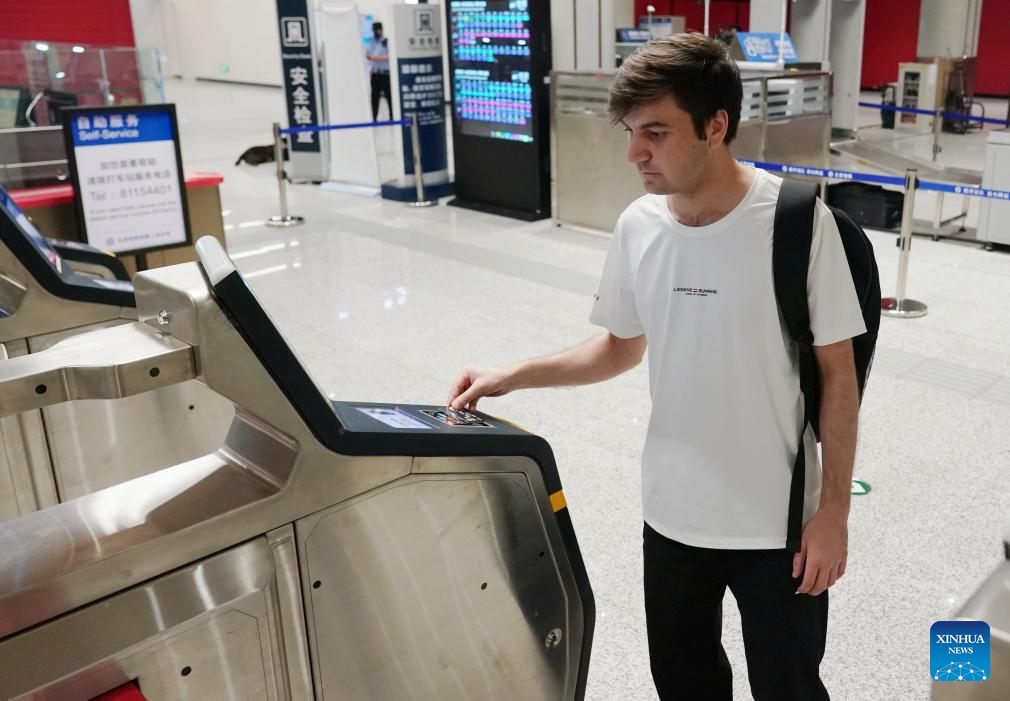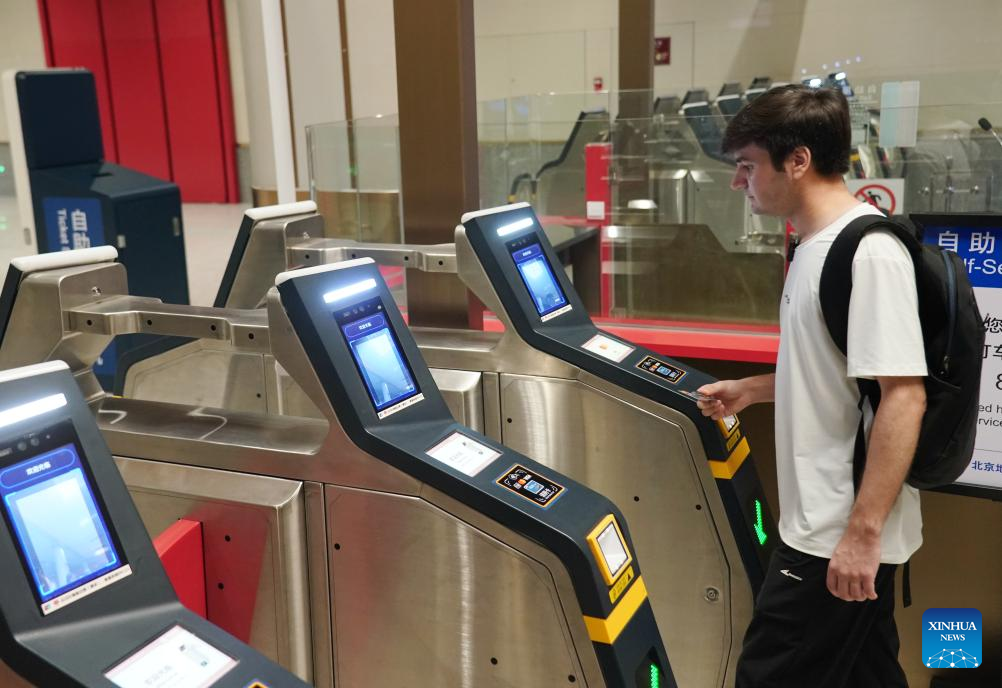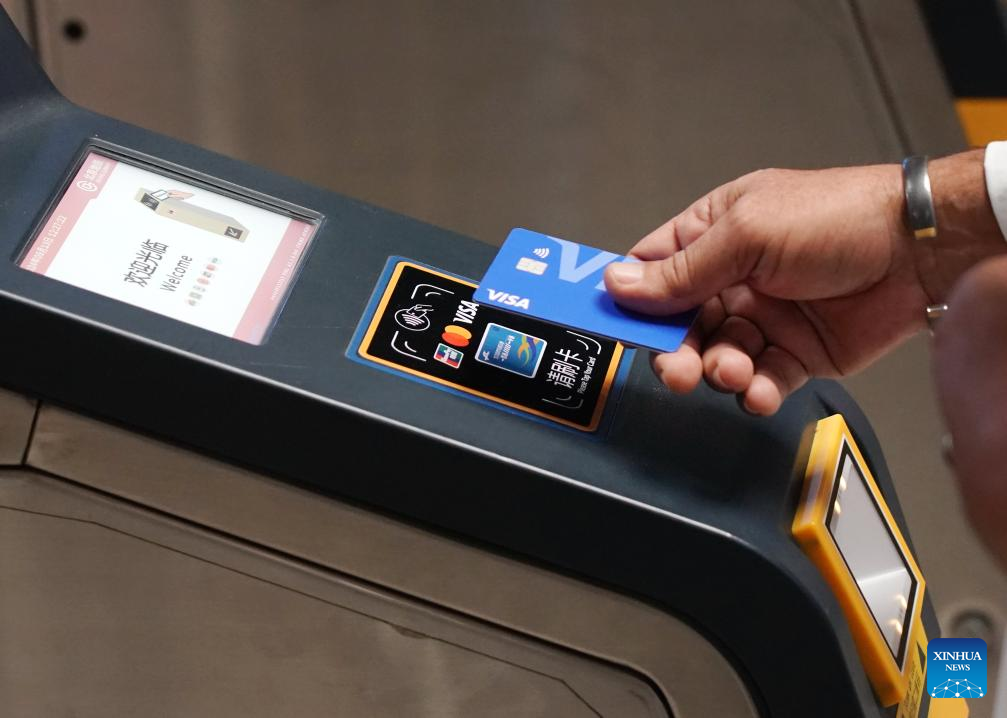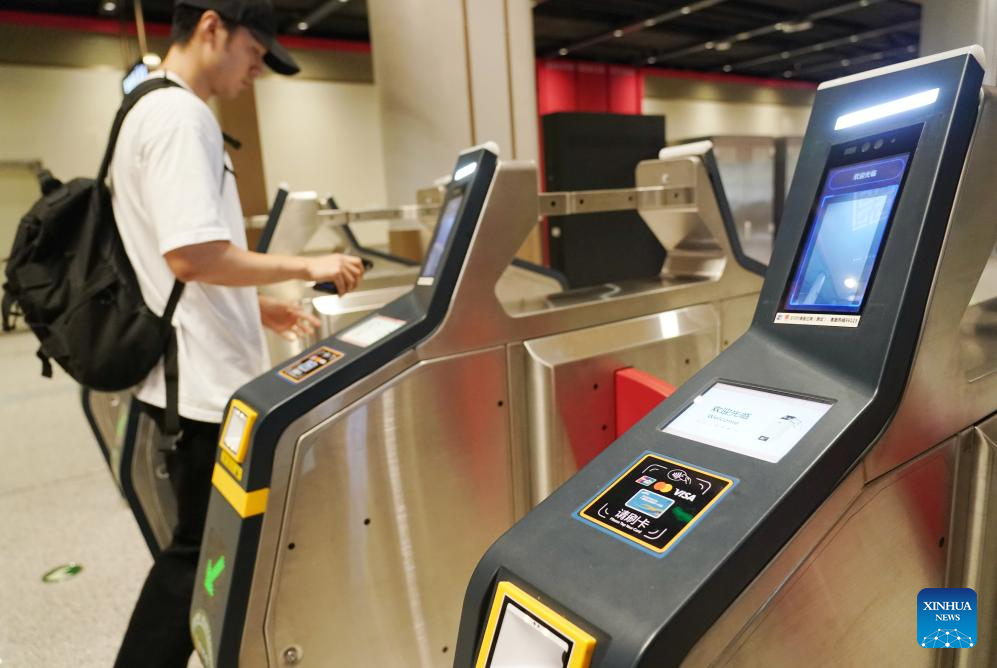
James Patrick from Canada experiences contactless fare payments in rail transit for foreign MasterCard and Visa card holders at the Xinshougang (Shougang Park) Subway Station in Beijing, capital of China, Sept. 13, 2024. Beijing becomes the first city on the Chinese mainland supporting contactless fare payments in rail transit for foreign MasterCard and Visa card holders. Starting Friday, international visitors can use MasterCard and Visa cards issued overseas to take rides on the city's entire rail transit network, and pay automatically according to the same billing rules as the local residents. (Xinhua/Zhang Chenlin)
Beijing has become the first city on the Chinese mainland supporting contactless fare payments in rail transit for foreign MasterCard and Visa card holders.
Starting Friday, international visitors can use MasterCard and Visa cards issued overseas to take rides on the city's entire rail transit network, and pay automatically according to the same billing rules as the local residents.
Beijing has upgraded more than 20,000 sets of facilities at subway stations of its rail transit system to facilitate the new payment initiative, which supplements current payment methods such as UnionPay cards and QR codes, to further improve the experience of international visitors for rail transit, the Beijing Municipal Commission of Transport announced at the ongoing 2024 China International Fair for Trade in Services.
The service is comprehensively available at all gates across 490 stations along 27 subway lines (including two airport lines, Xijiao Line and Yizhuang T1 Line), covering a total length of 836 km. Additionally, the Suburban Railway Line S2 is also part of this scheme.
"Compared with previous situations where foreign visitors had to buy tickets with cash or use their cards at manual ticket counters, the new access helps save time and avoid the hassle of purchasing tickets for them," said Zhao Zilong, deputy director of the Beijing Municipal Commission of Transport.
Beijing will also launch an international version of the "Yitongxing" app, which supports registration of foreign phone numbers and identity verification for foreign nationals, allowing them to use QR codes for travel purposes.
Optimizing the payment service highlights Beijing's determination to continue to expand its high-level opening up as an international exchange center, said Wang Ying, an official with the financial office of the Beijing Municipal Committee of the Communist Party of China.
Data shows that Beijing now has nearly 18,000 businesses that accept foreign cards, and all hotels rated four stars and above, as well as major cultural and tourism sites, are equipped with foreign currency exchange facilities.
From January to July this year, Beijing saw 1.995 million inbound tourists, an increase of 227.9 percent year on year. By streamlining business processes and adjusting payment limits, the number and value of mobile payments made by foreigners in Beijing in the second quarter have doubled that in the first quarter of this year.

James Patrick from Canada experiences contactless fare payments in rail transit for foreign MasterCard and Visa card holders at the Xinshougang (Shougang Park) Subway Station in Beijing, capital of China, Sept. 13, 2024.(Xinhua/Zhang Chenlin)

A visitor experiences contactless fare payments in rail transit for foreign MasterCard and Visa card holders at the Xinshougang (Shougang Park) Subway Station in Beijing, capital of China, Sept. 13, 2024. (Xinhua/Zhang Chenlin)

This photo taken on Sept. 13, 2024 shows the identification area of the ticket gate at the Xinshougang (Shougang Park) Subway Station in Beijing, capital of China. (Xinhua/Zhang Chenlin)
















